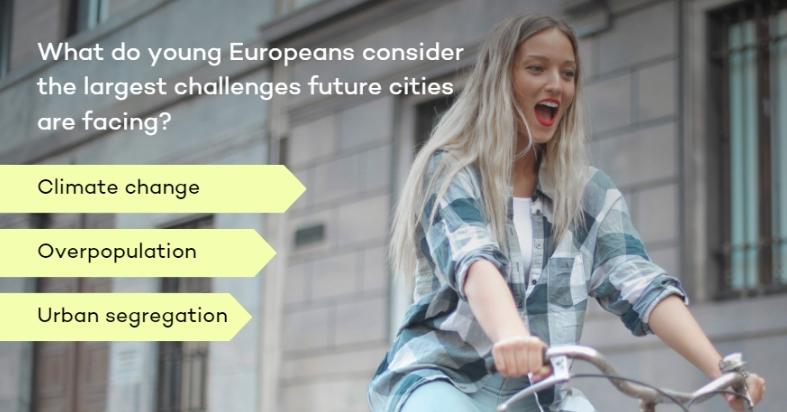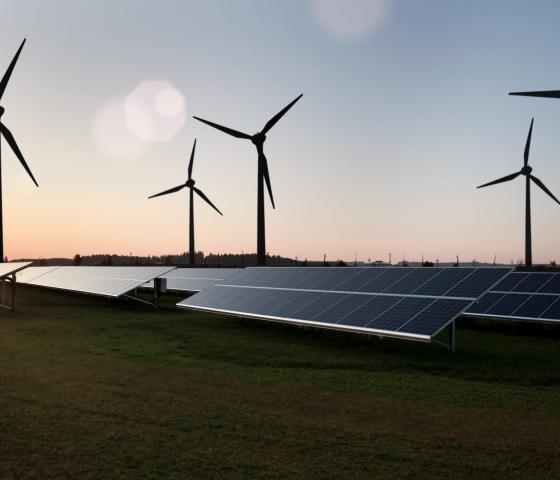
Building Climate-Neutral Cities with AI: Smart Solutions for a Sustainable Future
As the world's population continues to grow and urbanize, the need for environmentally sustainable and liveable cities becomes increasingly urgent.
With the help of cutting-edge technologies like Big Data and Artificial Intelligence, for instance GPT-4 that is gaining recognition by the second, cities can become smarter, more efficient, and more eco-friendly. AFRY experts Henrik Mårtensson and Fredrik Kahr provide an overview.
As the world's population shifts towards cities, the environmental impact of urban areas is becoming increasingly concerning. Cities occupy only 2% of the world's landmass but are responsible for 70% of global carbon dioxide emissions. Cities are increasingly discovering the benefits of using AI and Big Data to tackle the challenges brought on by urbanisation and climate change. While the scope and possibilities of AI is constantly changing, there are some proven benefits for cities with sustainability ambitions.

For instance, AI can swiftly help provide code-based scenarios. The widely spread and increasingly used GPT-4 can generate code snippets based on specific prompts or requirements, useful when automating processes. Furthermore, GPT-4 can analyze structured and unstructured data to uncover patterns and relationships that might be difficult for humans to detect. This helps decision-making based on data-driven insights.
“AI-powered systems can analyze data from various sources, identify patterns, and make real-time adjustments to improve energy efficiency and reduce emissions. By harnessing the power of AI, cities can accelerate their journey towards climate neutrality.” – Henrik Mårtensson, Section Manager for AI, BI, and Data Analytics, AFRY
Overpopulation Threatens Quality of Life in the City
The concentration of people in urban areas has led to a depletion of vital resources such as living space, food, and water, resulting in an unforeseen decline in the overall quality of life. Additionally, the issue of overpopulation in cities gives rise to various other predicaments such as logistical congestion, a scarcity of food supplies, and poor sanitation. As residents' incomes rise, they tend to acquire more vehicles, which amplifies the total number of cars on the roads, while the mobility space remains unchanged.

Using AI to Attain Climate Neutrality: Five Approaches for Cities
The rise of smart cities promises to build climate-neutral cities that meet the needs of their residents while minimizing their environmental impact. Here are five ways in which AI can help cities achieve climate neutrality:
- 1. Surveillance optimization
- 2. Traffic and parking optimization
- 3. Aerial delivery and monitoring
- 4.Effective waste management
- 5. Electricity and water supply
Traditional surveillance methods collect all activity, regardless of whether it is legal or not. New AI technology can use advanced algorithms to analyse events on the edge and save data only when predetermined events occur, such as crimes or accidents.

AI can modify traffic lights to reduce traffic congestion and notify drivers of available parking spaces, reducing the number of cars on the road and associated environmental pollution.
Smart autonomous flying objects, such as drones, can haul smaller packages and reduce traffic congestion in cities. They can also be used for real-time crime scene monitoring.

Smart sensors can be fitted into trash cans and dumpsters, notifying waste management agencies when they need to be emptied. This can reduce the cost of operations and eliminate unscheduled pick-ups.
Smart systems can be put in place to monitor and optimize energy grids and water supply, reducing the carbon footprint of cities.

As the world continues to urbanize, it is critical to find ways to mitigate the environmental impact of cities. Smart cities powered by AI provide promising solutions for achieving climate neutrality while improving the quality of life for city dwellers.
“For more than 100 years, AFRY has built and developed cities. The combination of experts within infrastructure and future technologies enables us to find the best solutions that promise more efficient, smart cities, that are better for both the environment and the residents.” – Fredrik Kahr, Digitalisation expert, AFRY










